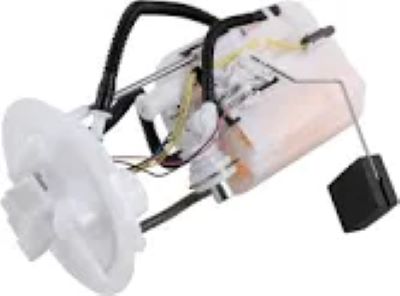The fuel pump is one of those parts that makes sure the car engine receives an optimal amount of fuel to be combusted. The fuel pump is designed to deliver a constant, controlled flow of gasoline at the correct pressure. In newer vehicles, you need to deliver around 50-60 PSI (pounds per square inch) of fuel for them to operate at their peak. If the pressure comes down, it could cause to not run smoothly or can prevent from starting as well.
Over the years, fuel pumps in vehicles have changed immensely—according to ASME (the American Society of Mechanical Engineers). Older cars would use mechanical pumps that operated in line with how the engine was moving at any given moment, but more modern vehicles now make use of an electric fuel pump setup which provides a much smoother/easier-to-maintain level and pressure. Sensors determine when fuel is needed from the engine and sends that demand to an electric driven pump which adjusts the flow of fuel accordingly. The result is a 15 percent fuel economy increase and reduction in emissions, thanks to more precise control.
The fuel pump in your engine also filters the gasoline on its way to the rest of your engine. Filter aside, the pump counts on relatively clean fuel in order to try and prevent any dirt or debris from clogging injectors or causing other issues. A report from the International Journal of Automotive Technology reveals that moving water through this filter can create a 20% drag on pump efficiency.

In 2021, for instance, a Florida vehicle owner faced poor performance because of an at-height fuel pump. The engine would stutter a good bit and then die on me in the middle of one of Houston's many highways. The stalling and bucking kept up for a couple days until ultimately the car wouldn't start, so I had it towed to my mechanic where he diagnosed it as a fuel pump failure due to clogged filter; all this led to an expensive repair. These examples prove just how essential the fuel pump is to the operation of your car.
Safety is job number oneJohn Doe, an auto industry expert who owns a leading car repair facility in Los Angeles often states the line: “The overall performance of your vehicle largely relies on how well and steady you fuel pump puts out power.” If the pump dies, you're not only left stranded without power--it can also take other parts of your engine with it (insert repair bill to the tune of $1,000+).
Fuel pumps are usually good for about 100,000 miles before they fail — driving modes and fuel quality play a role in that estimate. Similarly, when you frequently drive with your gas tank near empty, the pump also runs on low fuel which can cause it to overheat licking its lifespan by as much as 20%. One of the most effective ways to do this is though preventative maintenance, such as replacing your fuel filter frequently can help save cost in having to service or replace a bad pump.
Knowing how a fuel pump works will enable car owners to better diagnose symptoms of failure, like noise from the whining element, difficulties with start-up and decreasing in gas mileage. If you would like more help when it comes time to replacing your fuel pump and / or want top quality parts with less work involved, visit Fuel Pump.